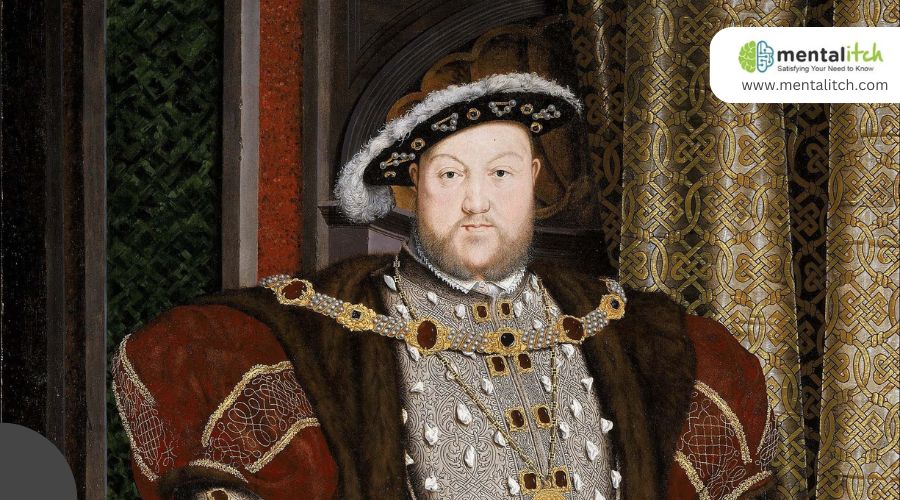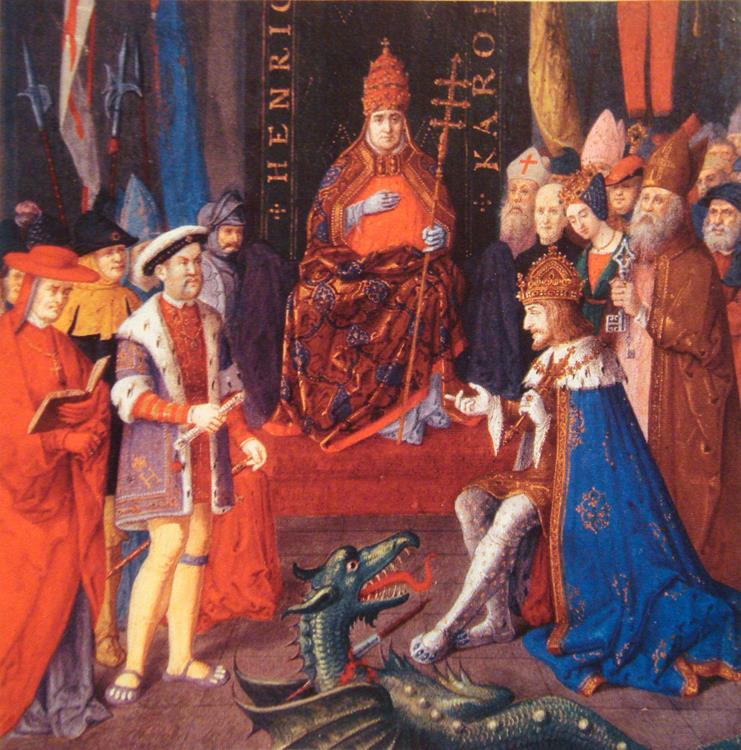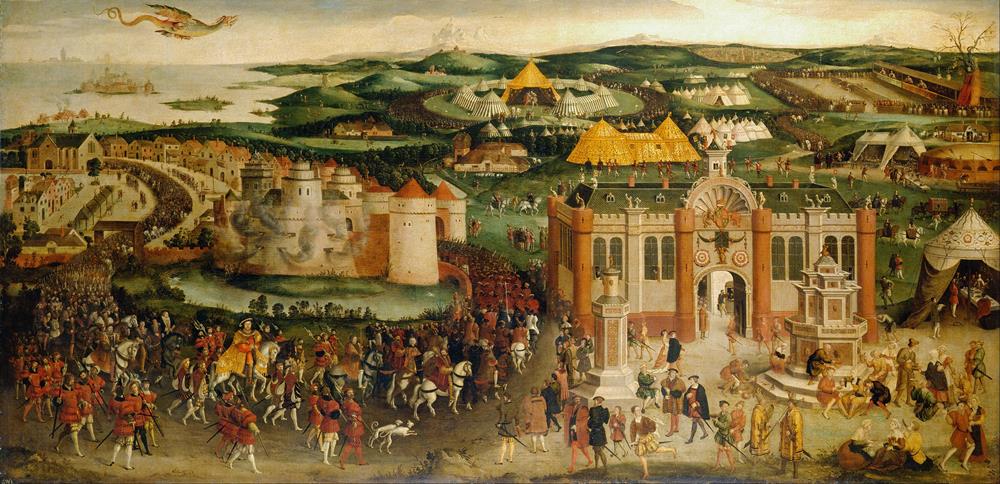From 1509 to 1547, England was under the rule of one of its most talked-about monarchs: Henry VIII. Known for his charismatic leadership and controversial life choices, Henry VIII’s reign was a period of significant change and drama. His time on the throne brought about shifts in political power, religious practices, and the very structure of English society.
Henry VIII is a figure that captures attention not just for his role as a king, but also for his personal life, which was filled with dramatic and often turbulent events. Three major aspects contribute to his notoriety: his series of six marriages, which were scandalous and politically motivated; the English Reformation, a bold move that redefined the religious landscape of England; and his autocratic rule, marked by decisive and sometimes ruthless decisions. Together, these elements paint a picture of a monarch whose actions left a lasting mark on England’s history.
Henry VIII’s Early Reign and Personal Characteristics
Henry VIII ascended to the throne in 1509, greeted with widespread enthusiasm. Young, vibrant, and full of promise, he quickly became the darling of the English people. His early years as king were marked by a sense of hope and excitement. England anticipated a golden era under his rule, and Henry did not disappoint during his initial years.
Henry was more than just a ruler; he was the epitome of Renaissance manhood. Charismatic and engaging, he possessed a sharp mind that was well-educated in the arts, theology, and the sciences. Not just content with intellectual pursuits, Henry was also an impressive athlete. He excelled in jousting, hunting, and tennis, showcasing a vigor that matched his intellectual prowess.
However, as time passed, the youthful king began to change. Personal tragedies, political challenges, and health issues took their toll on Henry’s physique and temperament. The athletic young monarch grew into a ruler with a notorious temper and a body plagued by health problems, including a jousting injury that never fully healed and contributed to his eventual obesity. These physical ailments, alongside the stresses of his reign, transformed Henry from a beloved prince into a feared and often unpredictable king.
The Six Marriages and Quest for a Male Heir
Henry VIII’s marriage journey began with Catherine of Aragon, his brother’s widow, whom he married in a bid to secure a male heir. However, when Catherine failed to produce a surviving male child, Henry’s desperation for a son led him to seek a divorce. This decision sparked a monumental clash with the Catholic Church and set the stage for the English Reformation.
Next, Henry married Anne Boleyn, hopeful for the son he so desired. Their union resulted in the birth of Elizabeth I, a future queen, but not the sought-after male heir. Frustrated and blaming Anne for her “inability” to produce a son, Henry’s affections waned, leading to Anne’s eventual execution on charges of treason and adultery.
Jane Seymour was Henry’s third wife and finally gave him the much-longed-for male heir, Edward VI. Tragically, Jane died shortly after childbirth, a loss that deeply affected Henry, marking one of the few times he showed genuine grief during his tumultuous marital saga.
Henry’s subsequent marriages—to Anne of Cleves, Catherine Howard, and finally Catherine Parr—were marked by political alliances, accusations of infidelity, and his search for companionship and further male heirs. Catherine Howard’s execution for adultery and Catherine Parr’s survival as the widow who outlived Henry added layers to the complex narrative of his marital adventures.
The English Reformation
Henry VIII’s quest for a male heir led to a monumental shift in the religious landscape of England. When the Pope refused to annul his marriage to Catherine of Aragon, Henry took matters into his own hands. He declared himself the supreme head of the Church of England, effectively breaking away from the Roman Catholic Church. This act not only allowed him to divorce Catherine but also to marry Anne Boleyn, signaling the start of a new religious era in England.
The English Reformation triggered widespread religious upheaval. The shift from Catholicism to Protestantism under Henry’s rule was not smooth. It led to confusion, resentment, and conflict among the populace, deeply dividing the nation. The changes affected every aspect of English life, from the way people worshipped to how they viewed their monarch and their God.
Governance and Political Maneuvering
Henry VIII masterfully used Parliament to give a legal veneer to his personal and political ambitions. He ensured that his break from the Roman Catholic Church and his subsequent marriages were approved and legitimized through parliamentary acts. This strategic use of Parliament not only bolstered his authority but also ensured that major changes, such as the establishment of the Church of England, had the law’s backing.
The Role of Key Advisors
Behind the throne, Henry VIII leaned heavily on the counsel of key advisors. Cardinal Wolsey and Thomas Cromwell were instrumental in navigating the complex political landscape. Wolsey, initially Henry’s chief advisor, played a crucial role in government and legal reforms. After Wolsey’s fall, Cromwell rose to prominence, helping to engineer the king’s divorce from Catherine of Aragon and the subsequent break with the Catholic Church.
Policy of Aggressive Military Campaigns
Henry VIII was known for his aggressive military stance. Eager to assert England’s power and expand its territories, he embarked on costly wars against France and Scotland. These campaigns drained the royal treasury but were meant to enhance Henry’s prestige and assert his dominance in European politics. Despite the mixed results on the battlefield, these military endeavors showcased Henry’s ambitions and willingness to use force to achieve his goals.
Economic Policies and Their Impact on England’s Economy
Economically, Henry’s reign saw significant changes. The dissolution of the monasteries brought vast church lands and wealth into the royal coffers, but his lavish spending and continuous military campaigns strained England’s finances. Additionally, his policies led to inflation and economic instability, affecting the common people’s livelihoods. Despite these challenges, Henry’s economic maneuvers reshaped England’s financial landscape, with long-term effects on its economy.
Conclusion
Henry VIII’s notoriety in English history is well-earned, marked by his six tumultuous marriages, the groundbreaking English Reformation, and his forceful governance style. His relentless quest for a male heir led to significant personal and political drama, reshaping the monarchy and the church. His decision to establish the Church of England forever changed the religious landscape, and his use of Parliament to legitimize his actions demonstrated a cunning approach to governance.
The lasting impact of Henry VIII on English history cannot be overstated. His actions laid the foundation for religious and political shifts that would resonate for centuries. Despite the controversies and debates surrounding his reign, Henry VIII remains a figure of immense historical significance, a king whose personal life and political maneuvers continue to fascinate and inform our understanding of a pivotal period in England’s past.


